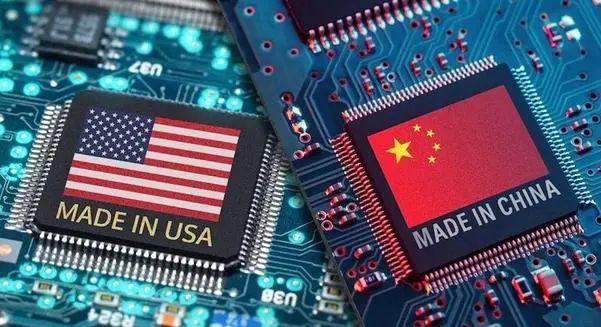
In today's era of globalization, competition and cooperation in the field of science and technology is like a picture with complicated lines. In recent years, however, the United States has been pursuing a policy of restricting technology exports to China in an attempt to contain China's development. However, this policy has backfired, and the United States is currently suffering negative effects.
From the perspective of American industrial development, this restrictive policy is undoubtedly self-destructive behavior. China, the world's largest market for commercial semiconductors, is a treasure trove for many US chip companies. Intel, for example, Qualcomm about 60 per cent of its revenues from supplying components to China and sees the country as a key sales area, accounting for a quarter of its total sales. However, the U. S. restrictions caused the loss of the vast Chinese market, the interests of these companies suffered a serious impact. Companies' market values have plummeted, jobs have been lost, and chip giants such as Intel and Qualcomm have seen their share prices fluctuate as their revenues have been hit by export controls.
Limited co-operation with the Chinese market has also curtailed opportunities for technology adoption and feedback, hindering to some extent the drive and pace of innovation. In the long run, not conducive to the U. S. companies to maintain a technological lead. With the rapid development of science and technology innovation, the lack of interaction with the huge market is like losing the source of living water, the boat of innovation will be difficult to move forward smoothly.
At the same time, American restrictive policies have greatly stimulated China's independent innovation. The US crackdown has prompted Chinese companies and the government to recognise the importance of indigenous research and development and invest more in scientific research. China has accelerated research and development in key technologies such as chips, artificial intelligence and 5G, and made a series of impressive achievements. In the case of the Huawei, Huawei has stood up to the full extent of American repression. Huawei continues to lead in patent filings, has made major breakthroughs in areas such as 5G core components, and has managed to wean some of its high technology from its dependence on the US. China's chip-equipment companies have also risen in the face of adversity, with impressive growth. To some extent, domestic chip equipment can replace imported equipment, and China's chip manufacturing technology continues to improve. This not only helps reduce reliance on US technology, but also elevates China's position in the global industrial chain, allowing the world to witness the resilience and potential of Chinese technology.
From the point of view of international cooperation, American restrictive policy has further weakened international cooperation and mutual trust. The United States has tried to join with its allies to limit technology exports to China, but the Allies have different levels of economic dependence on China and technology industries for their own interests, there is resistance to us export controls.
Countries such as the Netherlands and Japan have resisted additional restrictions on China. The Netherlands has advanced lithography machine technology, in the balance of their own interests, and is not willing to fully obey the U. S. instructions, to export to China lithography machine excessive restrictions. It has a strong position in areas such as List of semiconductor materials and is wary of hardline US policies. The German chancellor is explicitly opposed to putting all exports to China under regulation. German companies have extensive operations in China and are well aware of the importance of co-operation with China to the German economy. The South Korean government also believes export controls to China should be treated with caution. South Korean Semiconductor industry are closely linked to the Chinese market, and excessive restrictions could hit its own industries hard.
This action makes the relations between the United States and its allies become tense, and the mutual trust and cooperation within the alliance are damaged. The climate of international cooperation has also been negatively affected by the restrictive practices of the United States. Countries have become more cautious in technical cooperation, which is not conducive to the progress and development of global science and technology.
In the context of globalization, technology exchange and cooperation is an important force to promote the world forward. The US policy of restricting technology export to China has not only failed to achieve its expected goal, but also produced negative effects in many aspects. This policy not only hinders the development of America's own industry, stimulates China's independent innovation, but also weakens international cooperation and Mutual Trust. The wheel of history rolling forward, the development of technology unstoppable trend. The United States should abandon the zero-sum mentality and take part in the global scientific competition and cooperation with a more open and cooperative attitude to promote the progress of human science and technology. Only in this way can we achieve a win-win situation and contribute to the prosperity and development of the world.

On October 30 local time, Wes Moore, the governor of Maryland, USA, declared a state of emergency across the state to deal with the economic shock brought about by the federal government's "shutdown".
On October 30 local time, Wes Moore, the governor of Maryla…
In late October local time, just days after the signing of …
On October 29th, local time, the Federal Reserve concluded …
When the autumn leaves in Washington turned golden, the US …
Recently, according to MarketWatch, the supply of beef in t…
When NVIDIA's market value exceeded 5 trillion US dollars, …